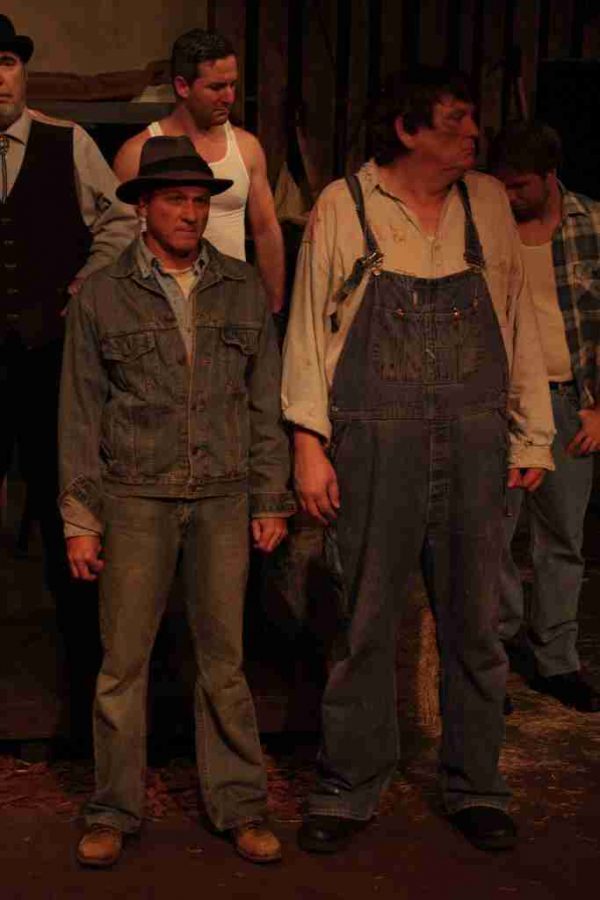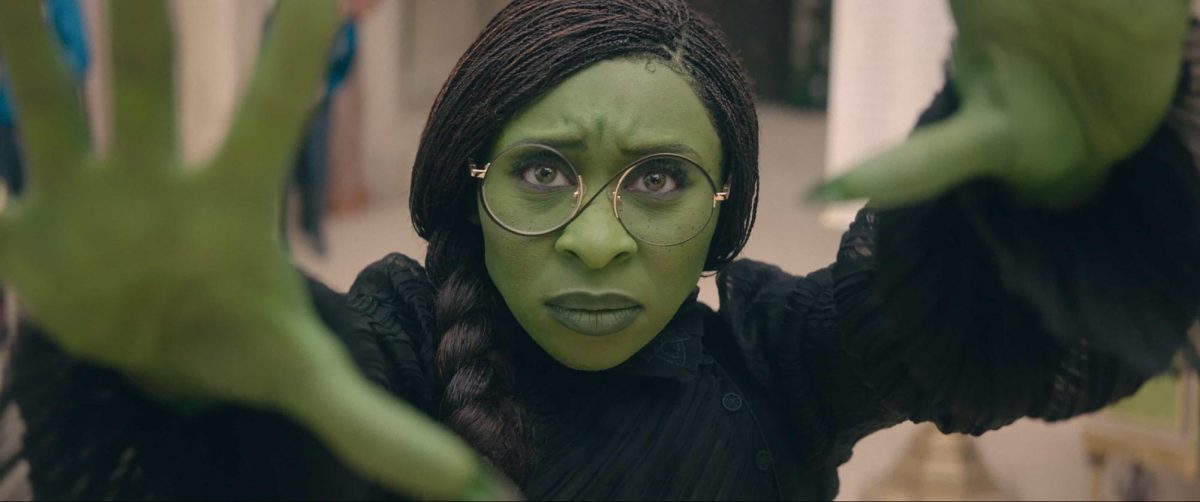“Of Mice and Men” is a story about learning when to pick your battles and knowing when to put a dog down.
Enter Lennie and George. These are two fellas who have been “going together for a while,” a statement which gives Whit a chuckle later in the plot, and essentially means they travel from gig to gig.
With a head full of goals and a heart of guilt, George is motivated to take a stake in some land and plant his roots. Though George dreams of life without Lennie, the softy obviously spurs him on.
George’s character is reminiscent of lone wolf, Roland, from Stephen King’s “Dark Tower” series — except for his loud mouth, of course.
Throughout the play, George is faced with conflicts across the board. There’s man vs. self, man vs. man, but not a hint of his aversion to nature, save
his hankering for owning a piece of it.
The actor himself (Jeff Hole) had a few obstacles to overcome, having only two weeks to memorize his lines, while the rest of the cast had about three months to rehearse. He played his role well enough, though Lennie (Tim Bass) stole the stage.
Lennie is played by Bass who took to adapting the mannerisms of his own son to flesh out the role.
“When he gets frustrated he puts his hands on his head.”
Bass describes the way Lennie rocks back and forth when under the scrutiny of his best friend and chaperone.
George teaches Lennie not to speak when he’s spoken to on this next job only to find out that everyone on the ranch wants a piece of Lennie’s mind.
The boss of the ranch takes Lennie and George in, with his farm hand Candy keeping an eye on it all. Candy’s a quiet gentlemen with a nose for adventure yet without the necessary, shall we say, youth one needs to succeed.
Aside from Slim (Dean Walkuski,) who takes a shine to George, the other workers on the ranch are suspicious of the two newest members of the group.
Curley is a prick who has a villainous red-headed vixen for a wife, Whit is a nit-wit who likes to get laid by the lousiest bar maids in town, and Lennie only does what he can, to get close to the wonders of women.
After a rousing argument aimed at Lennie, highlighting his more recent folly, George shares a bit of his foreshadowing nature with the audience when he speaks aside, allowing Lennie to become absorbed in eating his can of beans, fingers first.
He then tells Lennie to come back to this place by the river “at the first sign of trouble.”
And that’s exactly what becomes of our broad-shouldered lug of a character that is our lead character.
See, Lennie has a fetish for all things soft and silky, such as the fur of a mouse or the touch of a young girl’s hair.
Curley’s wife gives all men who cross her path “the eye,” as Candy puts it.
Lennie can’t quite catch her drift when she tries to cast her spell on him, so she tells him to stroke her locks. He gets wrapped up in the moment and snaps her neck.
Out of horror, or shame, or whichever feeling a man has when he takes the life of another, Lennie flees the scene and takes to the woods, waiting for George to come rescue him yet again.
Curley leads the entire cast out on a hunt for the guy who broke his hand and killed his wife.
While John Steinbeck’s novel “Of Mice and Men” is widely known as a tragedy, the play reads more like a comedy, with a slight note of death that springs up on cue. You could say the whole play is an allegory for a lonely life not worth living without someone to share it with.







